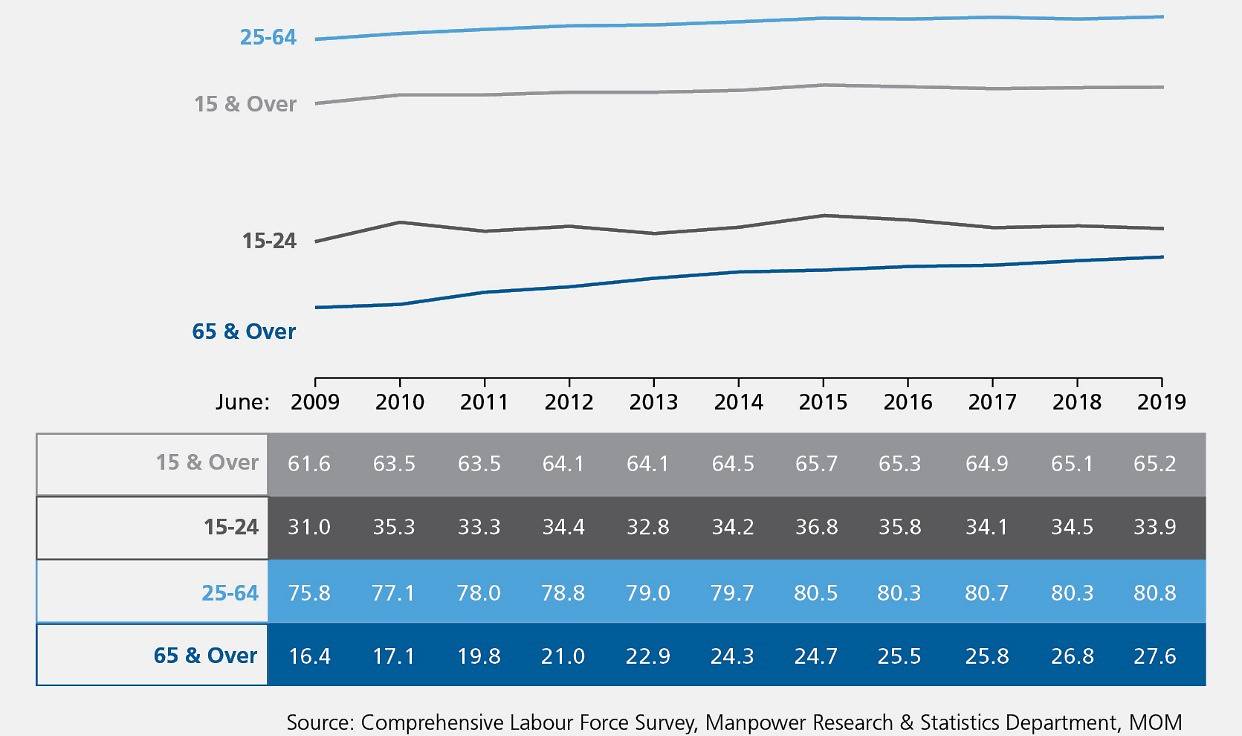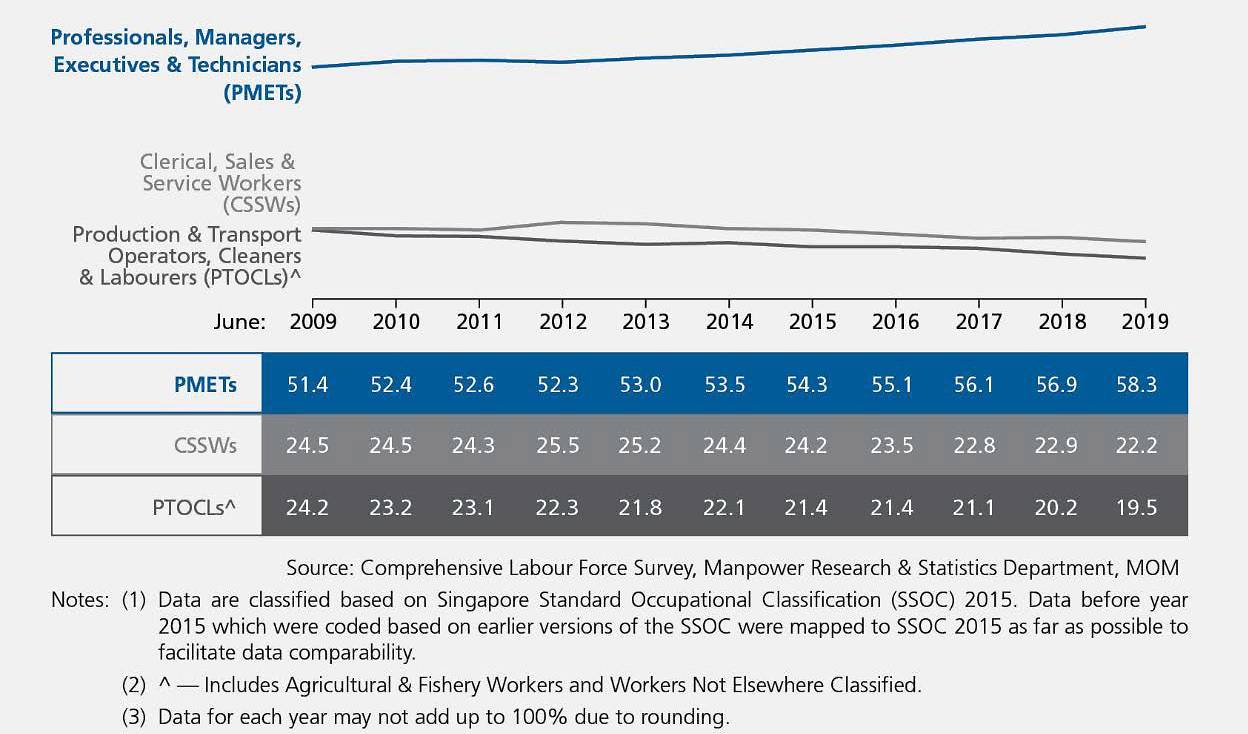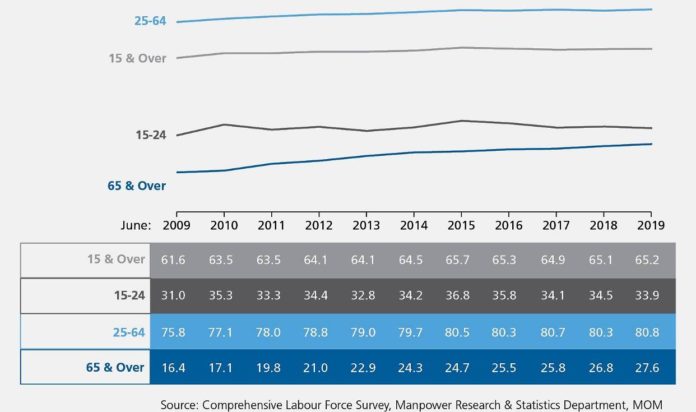SINGAPORE: Workers in Singapore received a bump of 2.2 per cent in their income, bringing monthly wages up to S$4,563 in 2019, according to the Labour Force in Singapore Advance Release report released on Thursday (Nov 28).
The real median income of Singapore residents on full-time employment increased this year from the S$4,437 recorded in 2018, the Ministry of Manpower (MOM) report said.
This year’s 2.2 per cent growth is lower than the growth of 4.4 per cent in 2018.

Resident employment rate by age (in per cent).
From 2014 to 2019, real median income increased by 3.8 per cent annually – “significantly higher” than the 1.9 per cent annual growth in the preceding five years.
The findings were based on the Comprehensive Labour Force Survey conducted in mid-2019 by the ministry’s research and statistics department.
Low-wage workers – those at the 20th percentile – experienced 4.4 per cent annual growth in median income from 2014 to 2019, higher than the 3.8 per cent growth for those at the 50th percentile and significantly higher than in the preceding five years.
READ: More support for manufacturing firms looking to train PMETs as sector transforms
EMPLOYMENT RATE FOR RESIDENTS INCHES UP
The employment rate for residents aged 25 to 64 inched up to 80.8 per cent in June 2019 from 80.3 per cent in June 2018.
Among those aged 65 and above, employment rate “rose firmly” to 27.6 per cent from 26.8 per cent last year.

Resident employment rate by age (in per cent).
Resident employment continued to grow this year despite “increasing economic headwinds”, said MOM.
“However, the unemployment situation is uneven, affecting non-PMETs more than PMETs,” it added.

Employed residents by occupation. (Graphics: MOM)
UNEMPLOYMENT RATE FOR NON-PMETS RISES
Unemployment among non-PMETs increased to 4.7 in June 2019 from 4.0 per cent a year prior, due to cyclical effects such as the US-China trade conflict which affected manufacturing output and retail trade.
But the increase in their long-term unemployment rate was “slight” – from 0.7 per cent to 0.8 per cent.
The ministry said it is closely monitoring the labour market with Workforce Singapore, and will support Singaporeans’ employment through the Adapt and Grow initiative.
“We also encourage jobseekers to be open to opportunities in other sectors and occupations beyond what they are familiar with,” it added.





